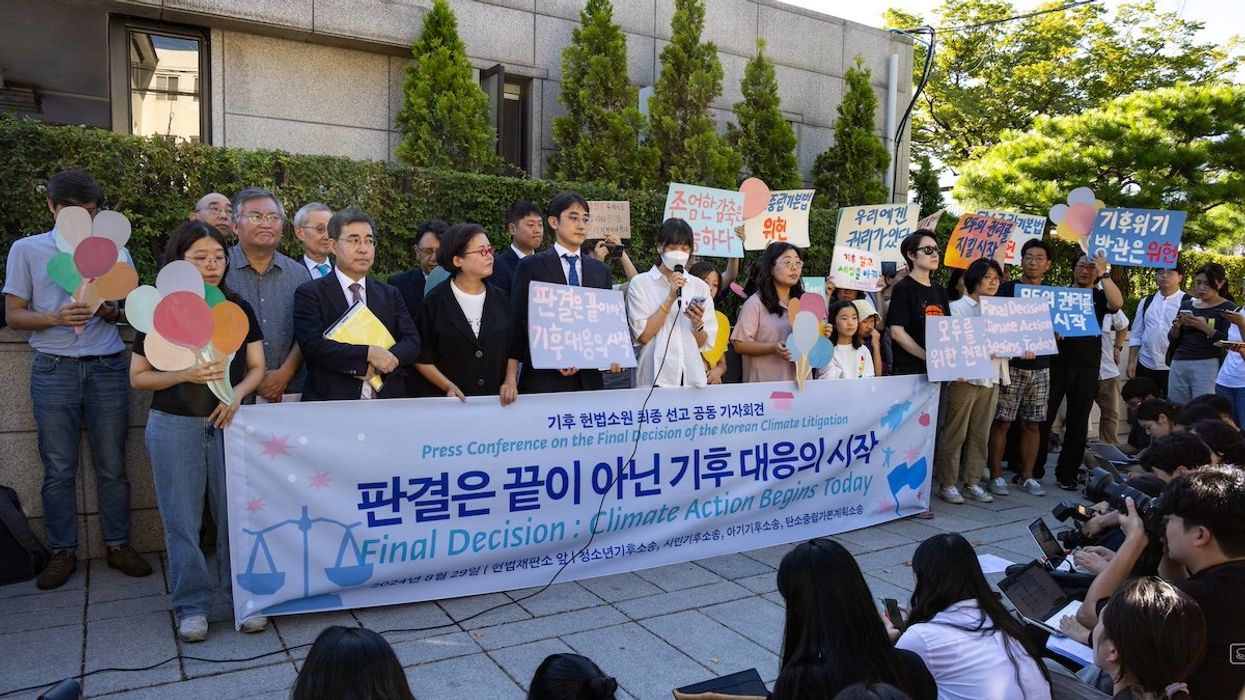What We're Watching
South Korea’s climate verdict: A catalyst for worldwide legal action
South Korea’s constitutional court has ruled that the country’s climate change measures are insufficient for protecting the rights of citizens, particularly those of future generations.
Aug 29, 2024

